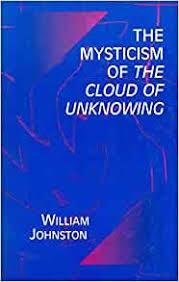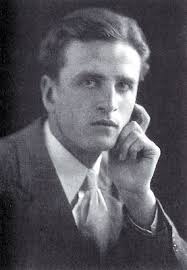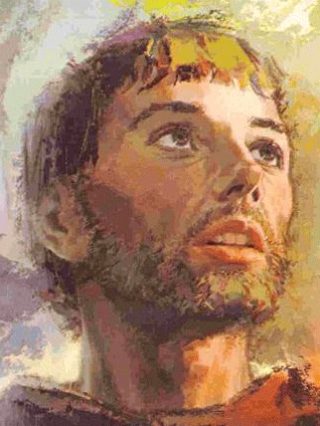The Unknown Author of The Cloud of Unknowing
Who Was he?
It seems fitting that a spiritual classic that emphasizes ‘unknowing’ is written by someone who wishes to remain anonymous. We can be fairly confident that the author is a man because the text is directed to a young man of twenty-four who wishes to lead a solitary spiritual life. It would have been unheard of in the fourteenth century for a woman to address a man in this way. There is a strong possibility that the author was a Carthusian monk or even a Dominican. At any rate, while not being a scholar, it is clear he is well versed in theology and may have travelled to the continent for religious education where he may have been influenced by the Rhineland mystics.
He sees himself as a spiritual director who is entirely loyal to the teachings of the church and in particular, the doctrinal formulae as articulated by St. Augustine and St Thomas Aquinas. It is also clear that he hails from either Nottinghamshire or Leicestershire in England because of the dialect of English that he wrote in. He comes across as a man who is not without a sense of humour and who is at times scornful of certain theologians who are too caught up in theorising.
Unlike Julian of Norwich, the author of The Cloud has little to say about visions or about meditations on the Passion of Christ. He tries to counterbalance the influence of Richard Rolle’s The Fire of Love, a very popular text at the time, which emphasised intense ecstatic experiences. In fact this author ridicules those who display fervent expressions of devotion by their facial expressions and posture and also is critical of those greedily seeking extraordinary mystical experiences.
Key Influences on The Cloud of Unknowing

The biggest influence on the author of The Cloud was Dionysius, who was a 5th century Syrian monk who wrote about mystical theology. The English author in his own writings stays very close to the Dionysian stages of the mystical journey i.e. purgation, illumination and union. Dionysius, reflects the Eastern church’s emphasis on the apophatic tradition, where it is understood that God cannot be directly grasped by the concepts of the mind but rather is perceived by what cannot be known about God. The Cloud author became familiar with these ideas through the Victorines, French Augustinian canons who had a school of mysticism in 12C Paris. They in turn were also influenced by the Desert Father, Gregory of Nyssa who spoke of a cognitive darkness necessary for spiritual illumination. Of course Gregory’s words hark back to the much earlier experience of St Paul, who blinded on the road to Damascus, finally sees the Light.
Unlike Julian of Norwich, the author of The Cloud is also heavily influenced by both the doctrine of St Augustine e.g. the concept of original sin as well as his mystical experiences and also the precise doctrinal statements in the philosophy of St Thomas Aquinas which became known as Scholasticism. There are touches of the German Dominican mystic Meister Eckhart too, but the English author is less speculative and more down to earth in his reflections.
The Medieval Context

The anonymous English author writes at a time when the Christian church had spent the previous nine hundred years trying to systematise the truths of the faith into a series of dogmas designed to protect against various heresies or mistaken understandings of the Gospel teachings. This approach came to be known as the kataphatic tradition, coming to an understanding of God through what can be defined about him or what can be grasped about him intellectually. At one level, the English author is fully in agreement with this, recognising the significance of Original Sin and the doctrine of the Trinity. But as we shall see, in The Cloud he embraces the apophatic eastern tradition that recognises the limitations of human understanding of God.
For all devout medievals the consciousness of sin was of paramount importance and because of the presence of sin, there is a need for purification. While the sacrament of penance can wipe clean the negative effects of the sins of an individual, only contemplative prayer could eradicate the roots of sin – those deep-rooted tendencies in all of us towards greed, and hatred, among others. And in this period, renunciation of the things of the world was considered a prerequisite for contemplation. The contemplative and celibate life was praised above the active family life. Prayer was regarded as more important than study. Complete absorption in God was considered the ideal. However, The Cloud author cautions that only those in a state of spiritual readiness will have the necessary psychological strength to withstand the arduous contemplative journey.
So What Should we Know about The Cloud of Unknowing?
Well, it is not for the faint-hearted! Unlike the re-assuring tone of consolation in Julian’s Revelations of Divine Love, the author of The Cloud warns his intended reader:
Do not willingly and deliberately read it, copy it, speak of it, or allow it to be read, copied, or spoken of, by anyone or to anyone, except a person who, in your opinion, has undertaken truly and without reservation to be a perfect follower of Christ.
The author has in mind the distinction between those ordinary folks called to salvation and that much smaller group called to perfection through the route of contemplative prayer. But how does one know if you might be in the latter category? For this English author, there are a number of signs that suggest readiness for contemplation. These include, a longing for God, a passion for silence, a reluctance to pray using the usual formulaic prayers. In addition, there can be the distressing experience of being unable to think clearly and the mind feels dulled to the point of feeling ignorant about everything. The common practice of the time of discursive meditation where one reflects on the passion of Christ or scenes from the Gospel must now be left behind.
Instead we must put between ourselves and all that we know a ‘cloud of forgetting’. This cloud of forgetting allows us to let go of our pre-occupations about ourselves and the world around us. And in front of us we must place a ‘cloud of unknowing’ a willingness to go into the dark to meet God without the ability to see or understand in any conventional sense. We are then invited to pierce this cloud of unknowing with an arrow of love i.e. our love and longing for God. In this process, if we stay true to it over time, we are oned with God. We overcome the separation experienced by the sin of Adam. Our minds are no longer scattered but collected in the mind of God.
This is Not Just About Technique
However, this might sound like a meditative technique but that would be to miss the point. The technique is of emptying the mind of thoughts and images but this must be accompanied by a very special love of God. It is really about relationship. In faithfulness to the teaching of Augustine and Aquinas the author of The Cloud repeatedly stresses that this experience of contemplation is in response to the power of grace, an act of love from God, freely given which is neither dependant on who we are or the merits of our efforts in contemplation. We may prepare the ground as it were, by cultivating a certain attitude of love towards God but the higher stage of contemplation often known as infused contemplation is a gift that can’t be won through effort.

In this state of infused contemplation there may indeed be not only a sense of intense joy but also an overflow in terms of pleasant bodily experiences but we are told, in line with so many other mystics, that these experiences are not to be sought. In fact, the author goes on to remark, that sometimes the effect of this type of deep spiritual communion can lead to an enhanced physical appearance. Perhaps that is why so many are naturally drawn to people of great spiritual maturity.
But Is There a Practical Method?
There certainly is and it is quite simple though not necessarily easy to do. The advice in terms of letting go of thoughts and putting them behind ‘a cloud of forgetting’ is to use a prayer word. This word should be short, one or two syllables such as Jesus, Love, Peace etc.
The advice is to only say the word when the mind becomes distracted by thoughts in the same way that a large bird only flaps its wings when it finds itself losing altitude as it negotiates the currents of air in the sky. We are directly told not to use the word as something we reflect or meditate upon but only as a way of pointing that arrow to pierce the ‘cloud of unknowing’. The word helps to keep the heart open to that longing, loving quality that we direct towards God.

The Relevance for Today and Some Words of Caution
In recent years, just as with Julian of Norwich’s Revelations of Divine Love, The Cloud of Unknowing has been growing in appeal with a wide audience. This has partly been due to it’s championing by Fr Thomas Keating and his confreres Basil Pennington and William Menninger, all Trappist monks. They use this classic text for their form of contemplation known as Centering Prayer. The same technique of using a prayer word is used. However, the method is offered not just to the select few in monastic life but to all those who lead an active life involving holding down jobs, raising children and paying for mortgages. Thomas Keating’s writings remain true to the spirit of the intentions of the author of The Cloud but in addition, infuse it with all the modern insights into depth psychology and spiritual development.
However, even Thomas Keating admits alongside the author of The Cloud that the contemplative journey is usually not easy. It is advisable to have a spiritual guide to help navigate the rapids of this spiritual practice. According to the insights of many mystics down through the centuries, no one comes to union with God without suffering. The practice of contemplative prayer can at times be painful for the body as well as the mind. In that necessary stage of darkness the experience may be one of difficulty or dryness. Old emotional wounds may surface looking for healing, leading to intense feelings of depression or anxiety. These intense experiences encourage a sense of humility and make it possible to completely surrender to God’s will and protection. But the author of The Cloud unlike some of his fourteenth century contemporaries was not a great believer in suffering for its own sake. In fact, wary of the demanding nature of contemplative practice he offers his young reader this very sensible advice:
And so, for the love of God, guard against sickness as much as you reasonably can, so that, as far as you may, you are not the cause of your own weakness. For I tell you that this work demands the greatest tranquillity, and a state of health and purity in body as much as in soul. And so, for the love of God, regulate your conduct with moderation in body and in soul, and keep yourself as healthy as possible.

( This article is heavily indebted to William Johnston’s The Mysticism of the Cloud of Unknowing, Patrick Moore and Stefan Reynold’s “The Cloud of Unknowing” in Journey to the Heart edited by Kim Nataraja as well as The Cloud of Unknowing and Other Works Translated by A. C. Spearing)






